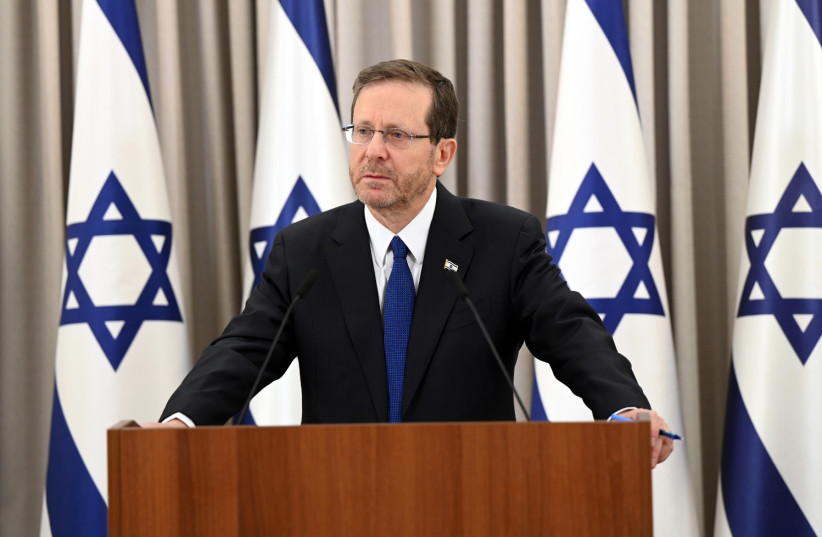The long respite of Passover is behind us, but the barrage of holidays continues unabated, with Holocaust Remembrance Day and Independence Day lining up in succession over the next 10 days.
It was possible for many Israelis over Passover to put the country’s woes on temporary hold, just as the government said it was doing with its plans for judicial overhaul.
Now that Passover is over, however, it’s time for all involved to realize that nothing has been resolved and the country is still on the brink of a dangerous tumble into chaos.
The people on the street realize this, with masses once again demonstrating throughout the country on Saturday night for the 15th consecutive week against the coalition’s planned legislative reform.
A hopeful sign emerge from political circles

One hopeful sign emerging from political circles is the apparent seriousness that both the coalition and opposition are attaching to the talks taking place under President Isaac Herzog’s auspices at the President’s Residence.
During the intermediate days of Passover, negotiating teams held extensive discussions in preparation for marathon negotiations expected to take place this week. The deadline for reaching some kind of agreement or compromise is April 30, when the Knesset begins its summer session.
According to a statement by National Unity’s negotiating team last week, the sides all agreed to a request by party leader MK Benny Gantz to begin by discussing the makeup of the Judicial Selection Committee.
Various proposals have been submitted and it appears that this issue is one on which the two sides are actually earnest about reaching an agreement.
However, even if there is an impasse, or the talks break down over the next two weeks, the legislation push may still be delayed. That’s because the first issue at hand when the Knesset reconvenes is to pass the state budget by May 29.
According to Israeli law, if a budget does not pass on time, the Knesset disperses automatically and a new election is held.
According to some media reports over Passover, the coalition has realized it has bit off more than it can chew and won’t be able to promote both the judicial overhaul and the budget at once. Therefore, the government will be forced to focus solely on the budget and put the judicial legislation aside.
This might just represent a delay in the inevitable clash to come over the legislation and may well do nothing to placate the protesters who are adamant that the legislation be abandoned permanently. But the extra time allotted to the sides in negotiations will enable them to work with less pressure than the looming deadline of April 30.
The Post’s Eliav Breuer reported that opposition MKs said the current situation resembled negotiations being held at gunpoint. A delay until the end of May would enable the two sides to build trust and not attempt to rush through the fateful issues they’re discussing.
Other reports indicate that the coalition plans not to return to the judicial legislation issue at all, preferring to let it die amid the protests and the accumulating repercussions, including the downgrading of Israel’s credit rating by Moody’s over the weekend.
If those reports are true, it may be a sign that the coalition is starting to prioritize governing, rather than pushing through a divisive legislative agenda. There is nary a sphere of Israeli society that isn’t affected by the decisions about what goes into the budget and what’s left out. The challenges are endless. The acute security threats on our borders, rampant crime in the Israeli-Arab sector that saw four people killed over the weekend and increasing cases of domestic violence and lawlessness in the Negev all demand a beefed-up budget for the police. And the list goes on and on.
These are the issues that Israelis need their government to focus on now. The coalition should set its priorities straight and focus on formulating a budget that will serve the needs of the Israeli people.
At the same time, the coalition and the opposition should be meeting round the clock until they emerge with a compromise that offers a solution to the judicial quagmire – one that is acceptable to both sides and enables the country to get back on track to handle the more urgent issues it faces.
